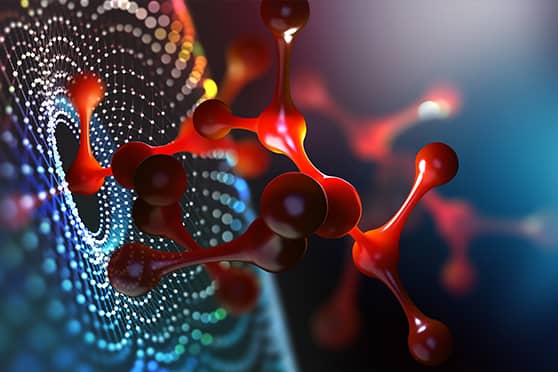Summary
Physics, Chemistry and Biology are compulsory subjects in the Plus-Two curriculum for Biochemistry
Calcutta University offers a two-year postgraduate course in Biochemistry
Are you fascinated by how biomolecules work and react with each other to kickstart biological processes? Going for Biochemistry is the perfect route to channel your passion as it would give you opportunities to get a peek into the secret of life — how living systems operate, survive and die.
What is Biochemistry
As the name suggests, Biochemistry is a combination of Biology and Chemistry. On a cellular or molecular level, it includes the examination and analysis of chemical processes such as respiration and metabolism in living organisms. It maps the behaviour of protein molecules, lipids, vitamins, minerals and hormones in a cell.
This interdisciplinary approach is used to explore the molecular details of all biological processes of living organisms. It makes significant contributions to scientific and medical progress in a variety of fields, including medical sciences, agriculture and the environment.
Studying Biochemistry:
- You need to clear your Class XII board exams with Physics, Chemistry and Biology as mandatory subjects. Based on your preferences and options, you can directly study Biochemistry; or opt for a master’s course after obtaining your bachelor’s degree in Chemistry, Biology or Physics; or come from a Medical Sciences background.
- After completion of your board exams, you need to obtain a BSc degree in Biochemistry/Chemistry/ Biology/ Microbiology or a related field of Biological Sciences with at least 50% aggregate.
- After doing your bachelor’s course, you can pursue an MSc course in Biochemistry for two years.
- After obtaining your master’s degree, you can pursue MPhil or PhD in Biochemistry. Many institutes, including Jadavpur University, Kolkata offer such courses.
- Alternatively, you can also study Biochemistry as a part of the Doctor of Medicine (MD) degree after completion of your MBBS degree.
Institutes that offer MSc in Biochemistry:
University of Calcutta, West Bengal
Course: MSc in Biochemistry.
- Duration: Two years.
- Eligibility: BSc in Biochemistry/Biological Science/Physics/Chemistry with 50% aggregate.
- Admission: Merit-based.
-
Click here to learn more.
Jamia Millia Islamia, Delhi
Course: MSc in Biochemistry.
- Duration: Two years.
- Eligibility: BSc in Biochemistry/Biological Science/Physics/Chemistry with 50% aggregate.
- Admission: Depends on your performance in the entrance exam conducted by the institute.
-
Click here to learn more.
Delhi University, Delhi
Course: MSc in Biochemistry.
- Duration: Two years.
- Eligibility: BSc in Biochemistry/Biological Science/Physics/Chemistry with 50% aggregate.
- Admission: Depends on your performance in the entrance exam conducted by the university.
-
Click here to learn more.
Banaras Hindu University, Uttar Pradesh
Course: MSc in Biochemistry.
- Duration: Two years.
- Eligibility: BSc in Biochemistry/Biological Science/Physics/Chemistry with 50% aggregate.
- Admission: Depends on your performance in the entrance exam conducted by the university.
-
Click here to learn more.
University of Hyderabad, Telangana
- Duration: Two years.
- Eligibility: BSc in Biochemistry/Biological Science/Physics/Chemistry with 50% aggregate.
- Admission: Depends on your performance in the entrance exam conducted by the university.
-
Click here to learn more.
University College of Science - Osmania University, Telangana
- Duration: Two years.
- Eligibility: BSc in Biochemistry/Biological Science/Physics/Chemistry with 50% aggregate.
- Admission: Depends on your performance in the entrance exam conducted by the college.
-
Click here to learn more.
Aligarh Muslim University, Uttar Pradesh
- Duration: Two years.
- Eligibility: BSc in Biochemistry/Biological Science/Physics/Chemistry with 50% aggregate.
- Admission: Depends on your performance in the entrance exam conducted by the university.
-
Click here to learn more.
Study abroad:
Several foreign universities offer courses that are intertwined with Chemistry, Biology and Medical Science. Here are some foreign institutes that offer courses in Biochemistry:
- Harvard University, US
- Columbia University, US
- University of California, Berkeley, US
- Imperial College London, UK
- University College London, UK
- University of Tokyo, Japan
Job roles with a Biochemistry degree:
-
Biochemist: Their primary work is concentrated on chemical processes such as cellular growth, brain function and cell-to-cell communication. They analyse enzymes, DNA and other molecules to research the effect of food and drugs on biological processes. They mostly work in the fields of drug development, food processing, toxicology, vaccine development and biotechnology.
-
Biomedical scientist: They plan and conduct a range of tests and experiments on tissue samples and fluids to help clinicians diagnose and treat diseases. They also support their labs’ quality management systems and ensure that everyone complies with the health and safety regulations.
-
Lab technician: They typically work in pathology and research labs. These people are in charge of physically testing all samples and compiling reports for the patients based on the results.
-
Clinical scientist: They analyse samples taken from a patient’s blood, urine or other bodily fluids to help with the diagnosis and treatment. They also develop and execute new tests. These professionals mostly work in a hospital laboratory set-up.
-
Scientific editor: Their job involves the editing and compilation of scientific journals, magazines and other types of publishing work. They check and evaluate research articles that have been submitted for publication.
-
Academic researcher: They carry out high-level research to generate new knowledge in Biochemistry and related fields. They are also involved in teaching and supervision of students.
Last updated on 07 Mar 2022

